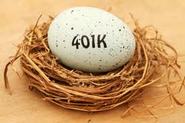
A. We will answer three questions instead: first, what is PMI? Second, what are the factors determine PMI? Third, how is PMI calculated?
What is PMI?
PMI stands for private mortgage insurance, it provides protection for the company that assumes the risk when underwriting a mortgage loan. Typically mortgage lenders require home buyers who make a down payment of less than 20 percent of purchase price of the home they are buying to obtain PMI.
What Factors Determine PMI?
A number of factors can impact the exact PMI amount.
- The purchase price of the home (the higher the home price, the higher the PMI)
- The loan-to-value percentage (the higher the loan-to-value ratio, the higher the PMI)
- The down payment amount (the less the down payment amount, the lower the PMI)
- Sub-prime mortgages and jumbo loans tend to have higher PMI.
How is PMI Calculated?
Generally speaking, you can estimate a range of PMI payments the following way:
- Upper Limit of PMI: Divide the purchase price of the home by 1500.
- Lower Limit of PMI: Divide the purchase price of the home you want to purchase by 3700.
Once you have calculated the upper and lower limits of PMI, you will have a good idea of how much you can expect your monthly PMI premiums will be. The exact amount won't be known until the closing process, as the exact premiums will be set by the insurance company that underwrites the policy.
Try our Mortgage PMI calculator to estimate how much your PMI premium might be.
























 RSS Feed
RSS Feed
